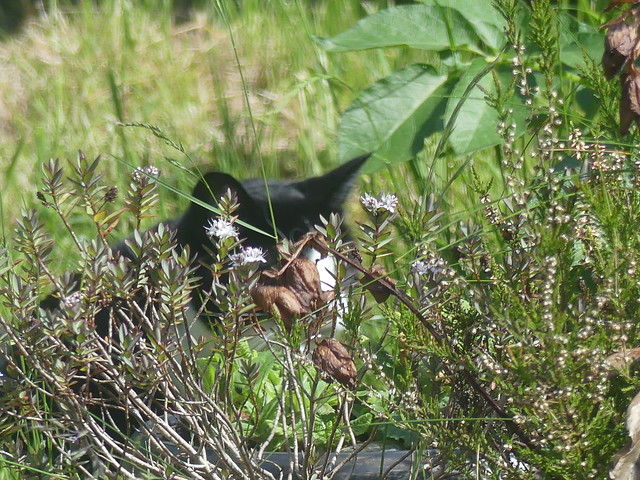Last summer, Aras, AK, Len and I did some exploratory research into “lurking” behaviour in #CLMooc. I wrote about a presentation I gave, and we recently had a paper published in EURODL. “Lurking” is a loaded term, with negative connotations, and we tried to find a more positive word. The best we could do was to suggest “legitimate peripheral participants” (LPPs), which is term from Lave and Wenger’s Situated Learning, which rings true for us as it looks at communities of practice and fits well with the ethos of CLMooc.
We concluded that this was a complex issue, that there was no one motive for being an LPP – that although time was mentioned many time as a reason, we suspect that there is more to be spelled out here – and we knew that we wanted to delve deeper into the questions.
It’s that time of year again, and with #CLMOOC in full swing again for the summer, we are planning some follow up research to see if we can probe deeper into online behaviour including lurker intentions. So we’ve created a Google form to capture responses – please do feel free to fill it out. I’ve embedded it on this page, but the link is also here.




LPPR makes me think of digital schlepper (less loaded than leper). Working on the form — looking up terms to make I understand them as intended.
As someone who runs multiple blogs and social media streams, bookmarks and archive like civ was going under at any (could be, ya know) and keeping at least one foot in both digital and daily life worlds, TIME is my overarching determinant, Besides, heading into mid-70s I need more sleep, and more than a few tasks take more time than they used to.
Interesting research! I haven’t had the opportunity to read your article yet (congratulations, by the way!). I am currently analyzing teaching presence (from the community of inquiry framework (Garrison, Anderson, & Archer, 2000) in two self-paced online undergraduate courses at Athabasca University. While I have no way of measuring lurking as such, there is the possibility of former students (who continue to be members of this closed group) lurking on the site. Students are also encouraged to use the archived learning diaries of former students to support their learning. Several students have recorded these actions in their diaries and I suspect that many more students use this resource than those who report it. Although it is not actually lurking, it is a form of legitimate peripheral participation which I will be analyzing using Wenger, Traynor, & de Laat’s Framework for Assessing Value in Networks and Communities of Practice, 2011.
I’m looking forward to reading your research!